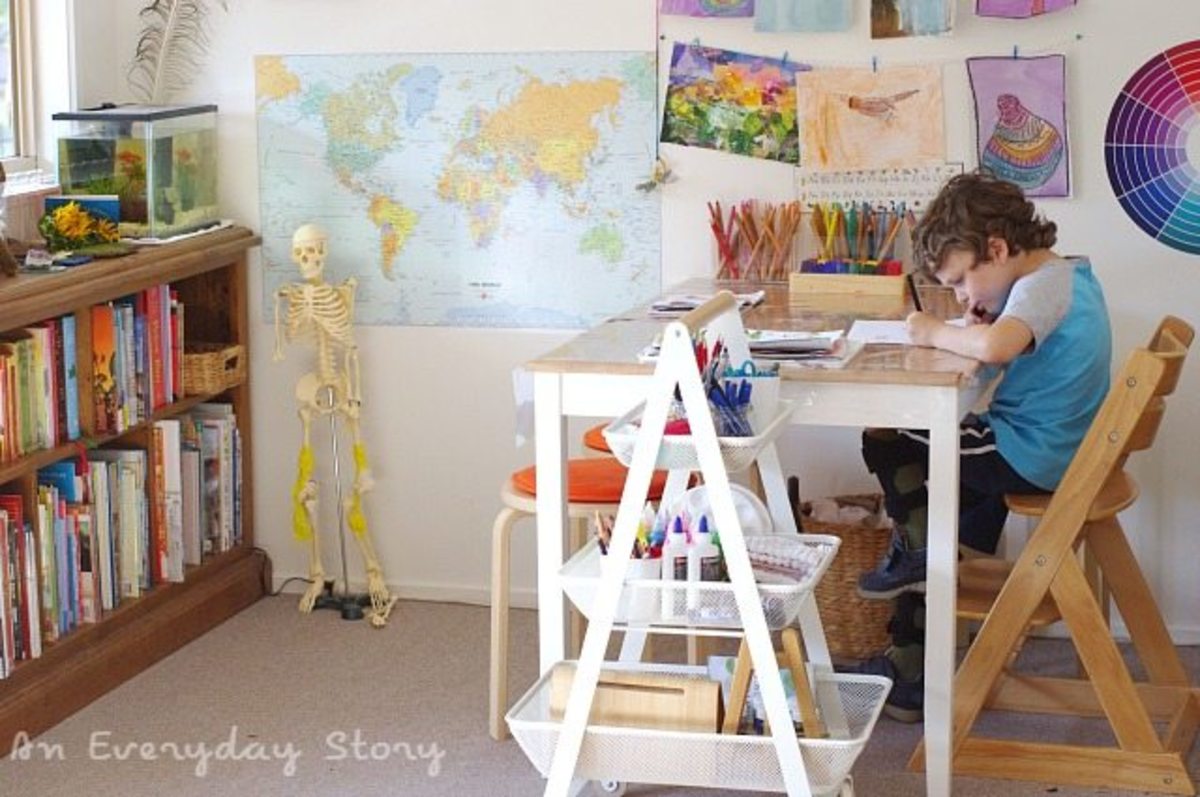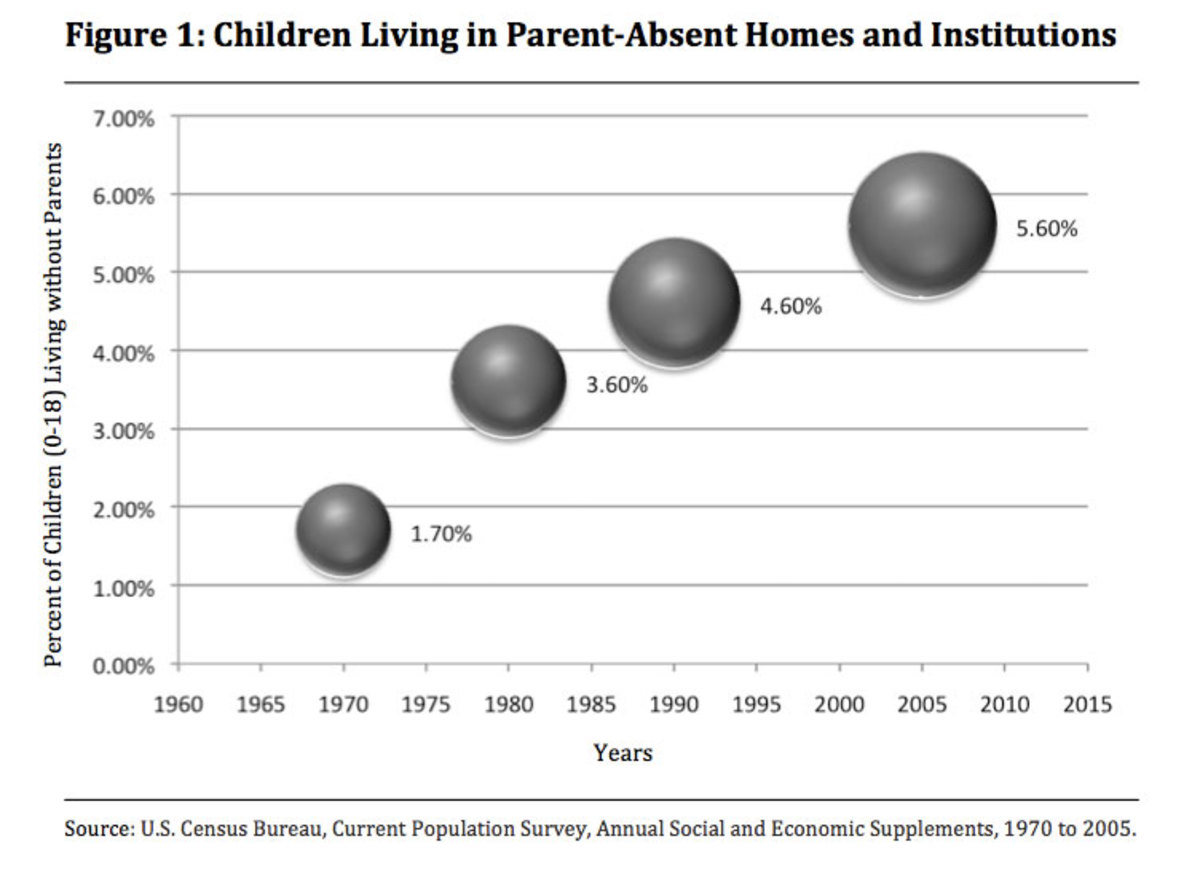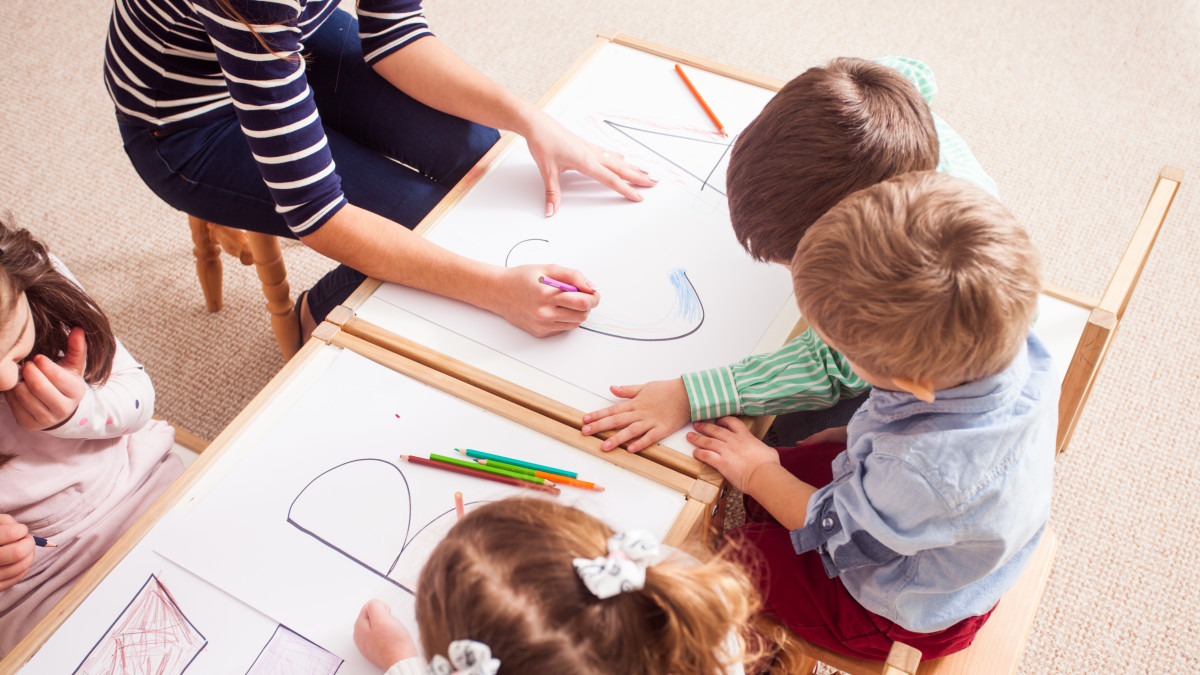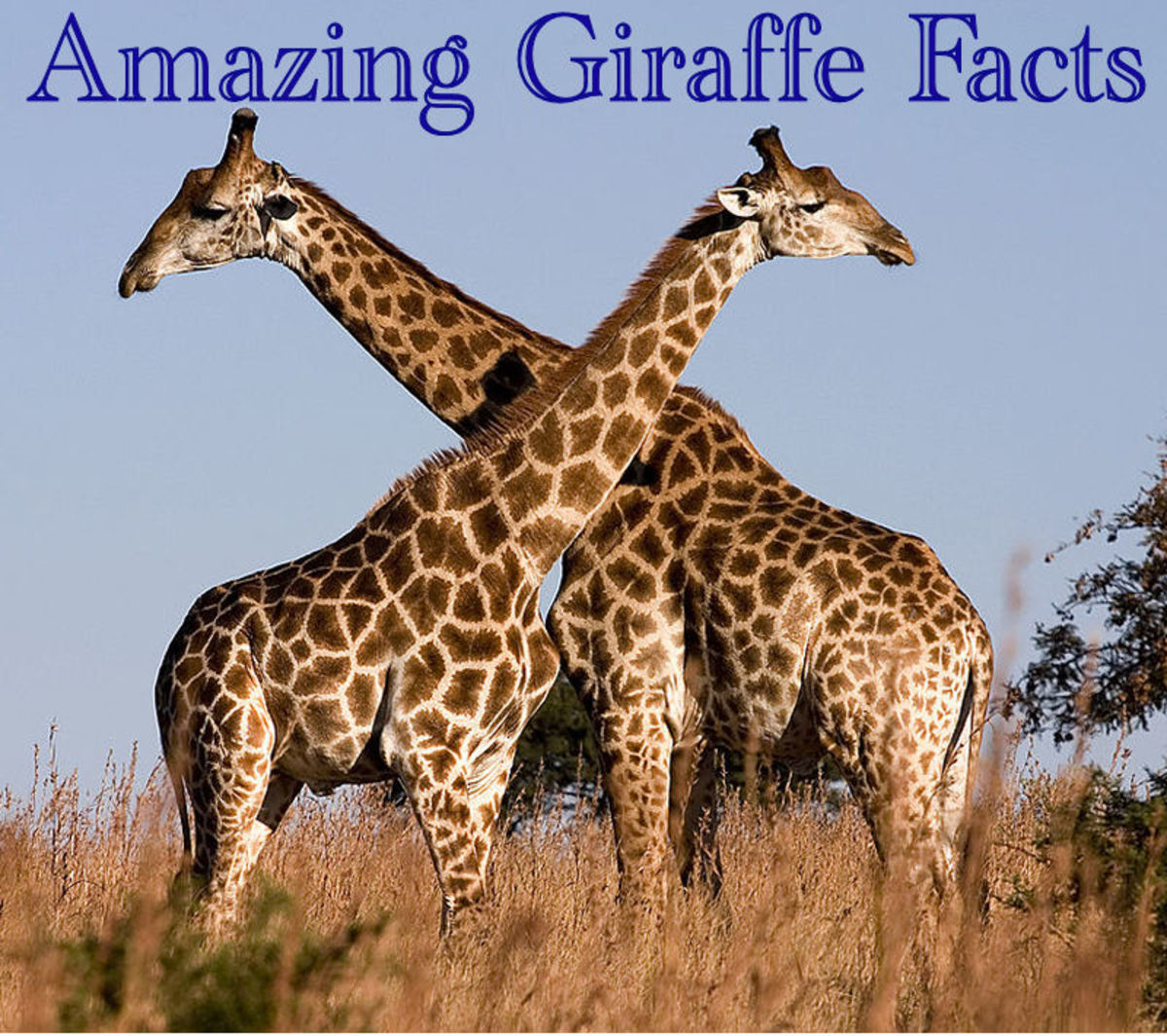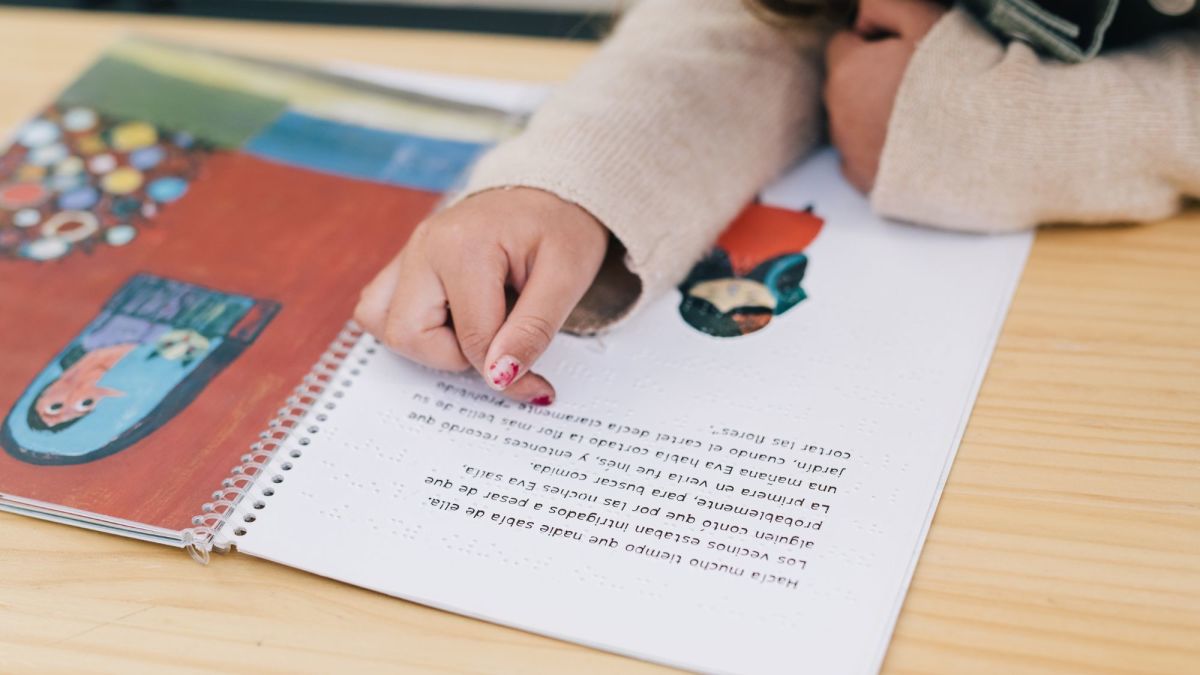Unschooling: What is it?
Unschooling is actually the original form of learning, though the term never came up until after compulsory education had it's time in the lime light. It's amazing how something so natural has been over taken by something so unnatural, and now is unnatural method is the norm. Sadly, most people are not aware of what Unschooling is, which makes it hard to even form an opinion about it one way or another. So let's explore the concept and see if you arrive at the same place you started in when you began this hub.

What is Unschooling?
The shortest simplest explanation for unschooling is: It's natural learning
What I mean by this, is that unschooling is when we allow our children to learn by what interests and drives them. There is no set age limit for when they must learn something, and no set curriculum of what they must learn. They learn as they grow, and instead of forcing specific subjects on them, we (as their parents) facilitate their interests to help them learn everything they need to know. In most cases, children who have been unschooled will learn everything they would in a public/private school setting, simply through the fact that there are very few things you can do in this world without basic skills such as math, reading and social etiquette.
Humans are distinct from most other creatures on this earth, only because we are given the ability to continuously learn new things at all ages. Not only that, but we are one of the few creatures that desire to learn things that we might not need to learn and we can innovate old ways of thinking to turn old lessons into newer better ones.
Controversy abound...
Even though humans have been learning through the "natural method" for much longer then the current educational format, there are still many controversies that come up. Most of them are from those who have come to believe that the government knows best or those who don't want to admit to reality. Though that doesn't mean there aren't some legitimate concerns abound. I have always felt there are no stupid questions in this world, which is why it's time to address some of these concerns.
1) What if the child doesn't want to learn?
In order to answer this concern, I must first dispel a large misconception. Or maybe you could consider it an illusion... To be more precise, those in favor of continuing compulsory education have found ways to make it appear that the only way to learn is from text books, class room time or through learning specific skills. The truth is that learning is much simpler than that. Everything we do is learning. From the moment we form in the womb, we learn to breath, digest and react to outer stimuli. From birth on, we have tons of things we need to learn. Walking, talking, touching, tasting, communicating, playing. As we grow, we have to learn more about the world around us. Dangers, pleasures, responsibilities. Once we master the basics, other ways to learn pop into view.
The traditional concept of learning is through books and teachers. Though a child is constantly learning. It's happening even now. For that matter, you are constantly learning, aren't you? And yes, reading this hub counts as learning! So if a child doesn't want to sit down and learn from a book, chalk board, white board or specific teacher, that doesn't mean they aren't learning. It doesn't matter if you have a video game eccentric child or one who just likes to play in the mud, there is always an opportunity to engage what they are already doing and find a way to bring extra education into it. Which also means that even the most reluctant child will learn all that they need, because they aren't being forced into it.
2) What about socialization?
This is a concern that I've heard a lot from my own family. They feel that in the public school setting, a child gets the best of socialization. Yet, is that really true?.... When you look at what a child goes through in the normal school setting, there are many experiences they go through that are unnecessary, and there are many behaviors they learn that must later be unlearned in order for them to function in society. Even public educators admit there are huge failures when it comes to properly socializing kids in the school systems. On top of that, if every child doesn't become a square peg that fits into a square hole, they are labelled, diminished and put in special classes.
Not all children are going to benefit from the social structure in the education system, and there are so far no studies that can prove either unschooling or schooling are better then the other. They both arrive at the same results in the end.
3) Won't the child get behind in learning if they don't learn certain things at certain ages?
Some parents and many skeptics worry because there is no force in unschooling. Which means that some child will learn certain skills early on, and others will learn those same skills later. The most widely publicized are children who don't officially learn to read until age 8 or older. While many unschoolers find they have children who are very interested in learning at very young ages, there is nothing wrong with a child who doesn't learn to read until they are older. The truth is that the child would be this way anyways, regardless of their education setting. The difference is that in "the system" they would essentially be punished for their lack of interest, where as in unschooling there is no need for that. Only encouragement is necessary, which fosters a better attitude toward reading and other skills. Either way, every child has time to learn. They can't officially get work until they are 18 (or 15 in some states), which means they have time to learn basic skills that most skeptics worry about.
And as of yet, I have not heard of any reports where an unschooled child grew up to be an adult who didn't know how to read, write, do math, learn history or be properly socialized. The basic design of unschooling is that if you teach your child how to learn, then they can learn anything they need to, with or without your help. That sets them up to be happy well-rounded adults who are not bound by believe they must be taught something in order to learn it. As they grow older, their interests will involve more and more of those "basic skills" that everyone worries about and they will be happy to learn them in order to accomplish their goals. In time, they will catch up and often surpass the education level of their peers.
4) What if the parents aren't qualified to teach certain subjects?
This is an interesting question. Many unschooling parents feel that there is no better teacher for their child then a parent. Though this doesn't get past the fact that we parents do not know everything. I find myself with a lack in math skills. It's never been my forte and I know it. So how is it that I can teach my child about math? The answer is much simpler than you'd imagine. For one, I can teach very basic math skills, how to calculate taxes and small percentages. These are what I know. The rest can be learned from Dad, who is a math wiz, or from Grandma who has worked in a bank for more than 30 years. We can also take some classes in public schools that focus on math, we can find tutors, we can watch youtube videos and we can go out and ask others in our community. There really are no limits. If my child seeks an interest in the complexity of mathematics, or if his interests take him into a field that involves a lot of math, we can both go and learn about it.
5) How can you work, have a life and unschool your child?
When you first start out, this may seem like a daunting question. How do you get "adult time" or how do you work a job and still unschool your child? The answer isn't as cut and dry, though not because it isn't easily done. It's only a bit more complicated because each parent finds different ways to accommodate everything. Some parents choose to have one parent stay home and one work. Others parents each work part time jobs so that they can have equal time with the kids and to work. Some parents choose to work at home, giving them the flexibility to go along with when their children are ready to learn. There are many options.
As far as having adult time, hobbies or non-child centric activities, most unschooling parents take one of two approaches. Either they plan to have the kids wrapped up in their own activities, or they use their own hobbies and adult time as an example for their children. Which is widely used because it shows kids that we adults have our own lives as well. We might be their parents all of the time, but it doesn't mean we can't have our own interests or a need for alone time.
6) Can unschoolers go to college?
Yes! In fact, unschoolers are eligible for scholarships available to anyone who is home schooled. They are also able to go and get a high school diploma if they want, or just a GED. They can get into community colleges, four year colleges and even ivy league schools. In fact, many unschoolers and home schoolers have been admitted to college at earlier ages.
Why choose Unschooling?
There are an infinite number of reasons, but some of the most common are:
*To be directly involved in what and how a child learns.
*To avoid "herd diseases" and for parents who don't want to vaccinate
*Unhappiness with the public/private education system
*To make sure each child gets proper nutrition throughout the day
*To foster appropriate social skills
Why would you choose to unschool?


